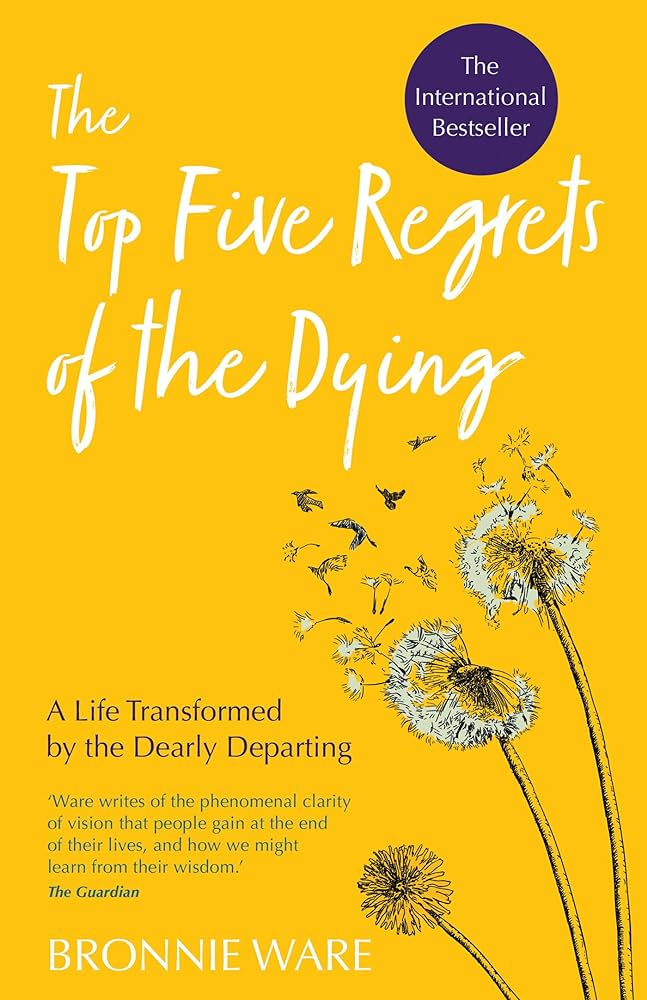- Tags:: 📚Books , Happiness
- Author:: Bronnie Ware
- Liked:: 4
- Link:: Regrets of the Dying – Bronnie Ware
- Source date:: 2012-03-20
- Finished date:: 2024-09-01
- ISBN:: 978-1401940652
- Cover::

Why did I want to read it?
After my mom passed away, and even though it sound a cliché, I was confronted with the finitude of life in a very clear way, and so… Am I ok with my current view of what is a life well lived?
What did I get out of it?
tl;dr
The book really is an expansion of an original article by the same author, a paliative care nurse: Regrets of the Dying – Bronnie Ware. The regrets are: 1. I wish I’d had the courage to live a life true to myself, not the life others expected of me. 2. I wish I hadn’t worked so hard. (In reality, this one is about spending too much time at work, not related to the intensity). 3. I wish I’d had the courage to express my feelings. 4. I wish I had stayed in touch with my friends. 5. I wish that I had let myself be happier.
Highlights
The premise was super interesting, but in some parts the author reads kind of like The Secret, too many wishful thinking for my taste. It’s not her fault, but there are also not big revelations: most of the regrets are what you could imagine. Although, as always…
But this is a hallmark of wisdom: it’s trivial to read but nearly impossible to put into practice (…) we need lots of examples to drive this wisdom home. We should be more forgiving of self-help (the genre) and more forgiving of ourselves. Putting wisdom into practice takes requxires reading, reflection, and practice.
Link to original
Una reflexión sobre cómo el propósito de vivir es pasar por instantes efímeros de belleza (que me conecta con lo que hablamos en la graduación de Instituto Tramontana sobre elevarse y con entender que lo efímero es precisamente lo que da valor ahí de 📖 Meditations for mortals).